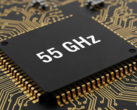Apple iPhone Air vs. Samsung Galaxy S25 Edge

iPhone leaks are taking a break for a moment until analysts, informants and leakers get their hands on the Apple iPhone 18 series. The star of the evening, alongside the Apple iPhone 17 Pro (Max), was, of course, the Apple iPhone Air. That's right, not an iPhone 17 Air. So, according to the nomenclature, it doesn't belong to the 17 series, but rather heralds a new era of iOS smartphones. Well, if such a historic turning point happens in my lifetime, I naturally have to give my proverbial two cents.
The Apple iPhone Air is official
Apple CEO Tim Cook unveiled not only the Apple AirPods Pro 3, three new Apple Watches and the Apple iPhone 17 series at the "Awe Dropping" launch event on Tuesday, but also the Apple iPhone Air. Measuring 5.64 millimeters thick, it even outshines its eternal rival Samsung and its Galaxy S25 Edge. According to the spec sheet, Samsung's thinnest phone measures just 5.8 millimeters. A fact that is unlikely to go unnoticed among smartphone enthusiasts.
In terms of weight, the Galaxy S25 comes out at 163 grams. The iPhone Air, on the other hand, tips the scales at 165 grams. Although these differences are negligible in real-world terms, battery capacity and camera quality are likely to play a much greater role in the purchase of an Apple iPhone Air.
Who has the biggest battery?
True to Samsung's battery motto, "Less is more!", the Edge offers 3,900 mAh. The iPhone Air, on the other hand, has a 3,149 mAh battery. Okay, so it could be worse. These values are undoubtedly a result of the slim design.
Unfortunately, the iPhone Air doesn't fare any better when it comes to the camera. Although a 48 MP fusion camera system is on board, according to the data sheet, it is unlikely to be on par with Samsung's 200 MP dual camera. A detailed review will reveal the facts here. On the front, Apple's 18 MP competes against Samsung's 12 MP. Apple's "Center Stage" technology, on the other hand, seems much more innovative.
What does this all mean for the Apple iPhone Air?
Apple has not only bowed to the general trend toward thinner smartphones, but has even taken the lead. This is a little surprising, as the company usually takes much longer to implement trends. Just think of the refresh rate, VR/AR or foldables. Even though Samsung managed to squeeze ahead with the Edge at the last minute, Apple's commitment here is a positive aspect.
Does Apple now have to shy away from the competition? No. Certainly not. Once you've embraced the Apple ecosystem, which admittedly works very well, you no longer look back to Android.
Thinner means more expensive
However, in my opinion, the starting price of $999 is a little cheeky, even by Apple standards. Samsung was even cheekier at launch with a recommended retail price of $1,099.99. But Samsung's prices change hourly. You can already get the Samsung Galaxy S25 Edge for 24% less. Apple, on the other hand, has proven in the past that it keeps its prices stable for a long time.
At least in this area, it remains to be seen whether Apple will have to make some improvements in order to achieve the desired sales success. After all, the Apple iPhone Air is "only" thinner, but mostly less well equipped otherwise. Even with its slow-selling Apple Vision Pro, the company is still sticking to its $3,499 price tag.
What is your opinion on the new Apple iPhone Air? Feel free to post it in the comments for a lively discussion.
Source(s)
Apple | Big MaTT






























